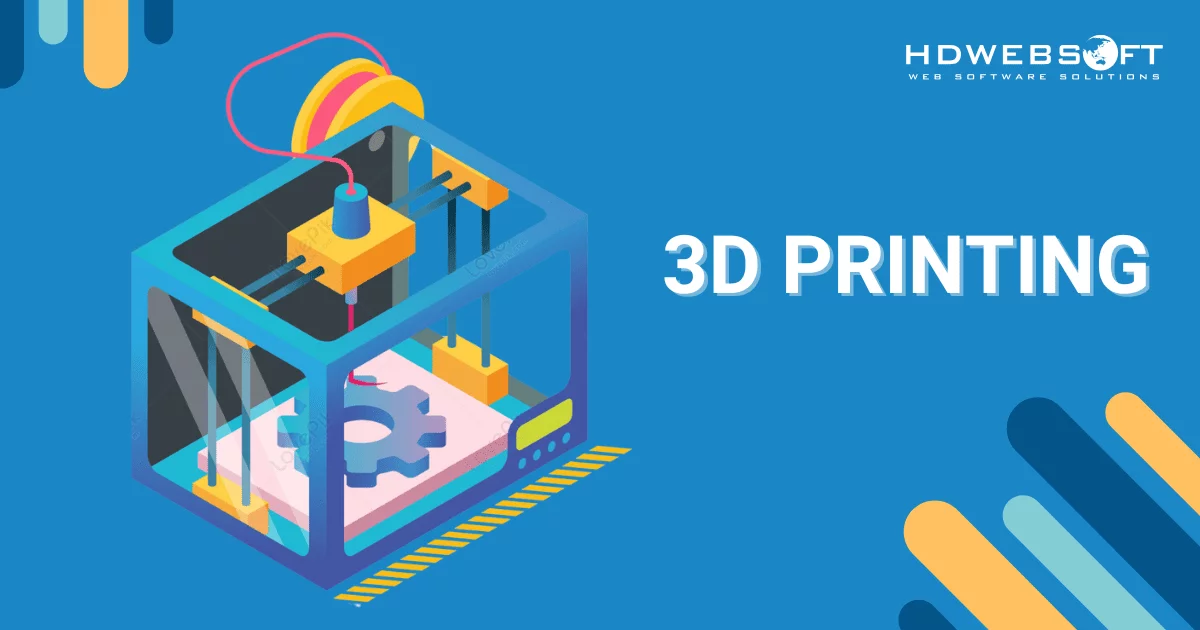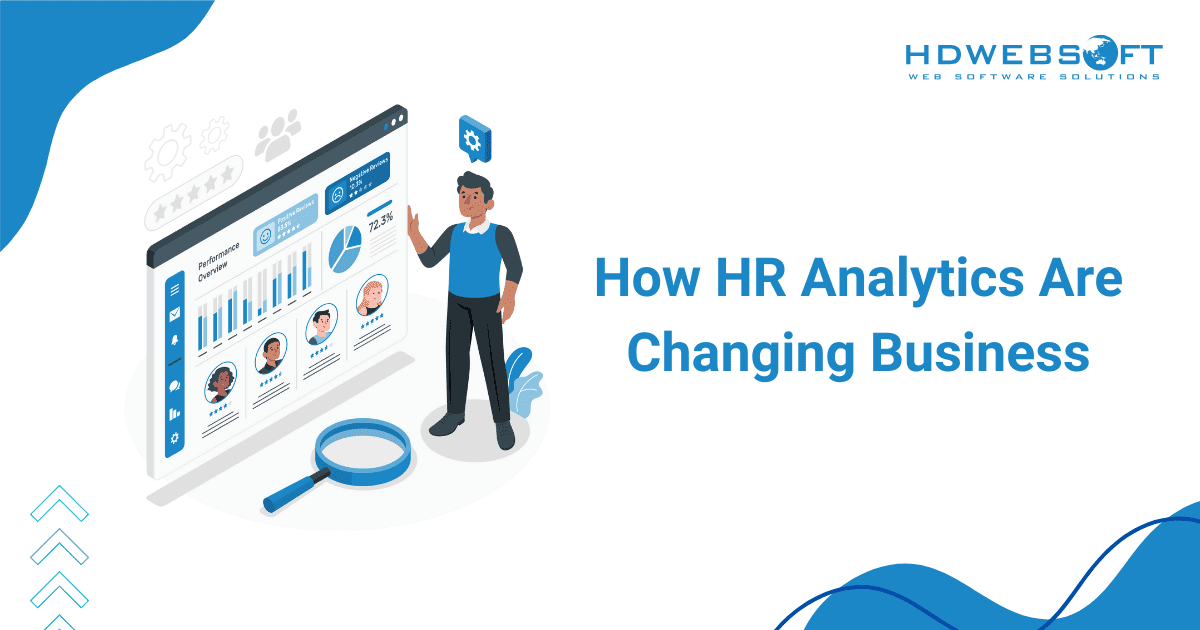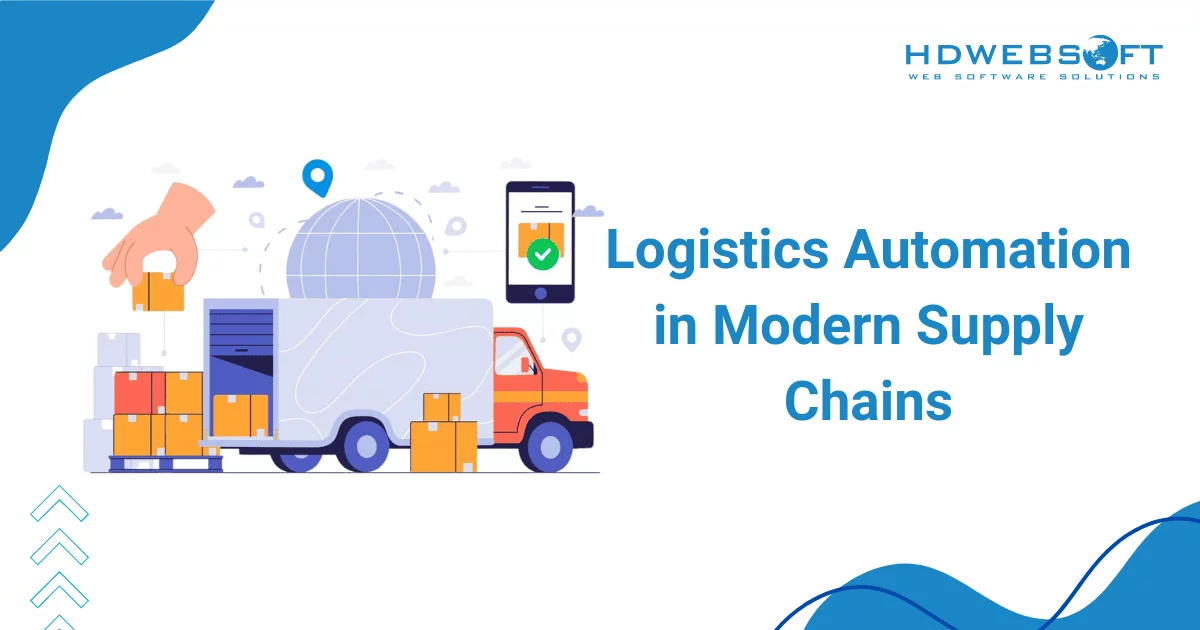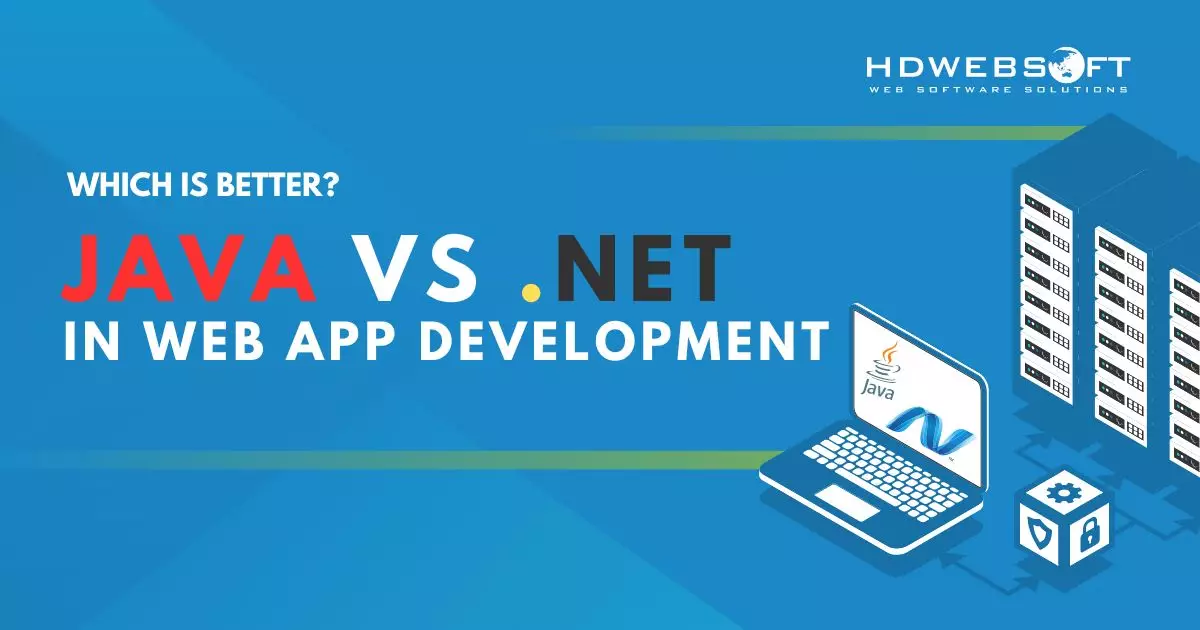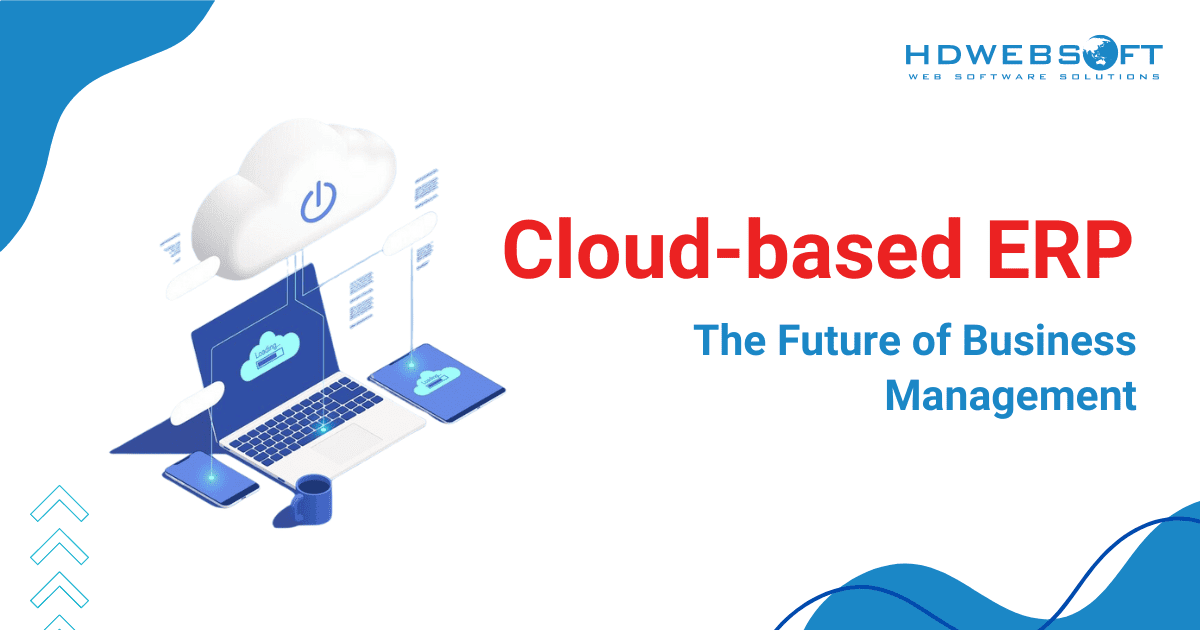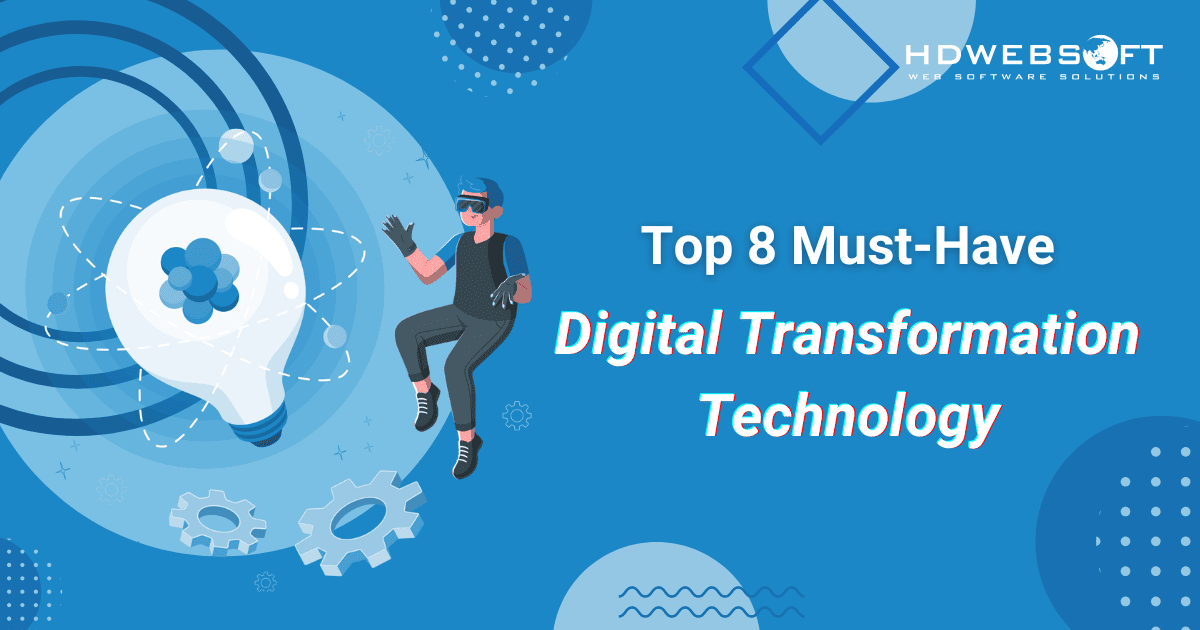
Top 8 Must-Have Digital Transformation Technology for 2025
Digital transformation technology is no longer a futuristic concept, rather, it’s actively reshaping industries and redefining business operations. In fact, according to IDC, global digital transformation spending is expected to reach nearly $4 trillion by 2027. The number has highlighted its critical role in modern business digital transformation strategies.
In 2025, staying competitive requires embracing cutting-edge technologies that drive efficiency, innovation, and growth. From AI-powered automation to advancements in 3D printing, these innovations will shape the future of business. Let’s explore the eight must-have digital transformation technologies for 2025.
- 1) 1. Artificial Intelligence and Machine Learning
- 2) 2. Extended Reality and Metaverse
- 3) 3. Internet of Things (IoT)
- 4) 4. Robotics and Hyperautomation
- 5) 5. Data Analytics and Business Intelligence
- 6) 6. Cloud and Edge Computing
- 7) 7. Blockchain Technology
- 8) 8. 3D Printing
- 9) Some Successful Digital Transformation Examples
- 10) Conclusion
1. Artificial Intelligence and Machine Learning
Automating Tasks and Decision-Making
AI and ML are transforming industries by automating repetitive tasks and enhancing decision-making. Consequently, businesses can leverage AI-driven insights to optimize operations. Moreover, they can detect patterns and predict customer behavior with greater accuracy. Ultimately, this digital transformation technology empowers businesses to innovate and stay competitive.
Use Cases of AI/ML
- AI-powered chatbots enhance customer support by providing instant, intelligent responses.
- Predictive analytics helps businesses anticipate market trends and make data-driven decisions.
- Intelligent automation reduces manual work in finance, HR, and supply chain management.
Future Trends
- AI-driven personalization in e-commerce and marketing.
- Advanced deep learning models enhancing fraud detection and cybersecurity.
- AI-powered healthcare diagnostics improving patient outcomes.
2. Extended Reality and Metaverse
Reshaping Customer Experiences
Augmented Reality (AR), Virtual Reality (VR), and Mixed Reality (MR) are transforming how businesses engage with customers. Together, they are creating immersive experiences that enhance engagement and operational efficiency.
How Extended Reality is Changing Industries
- Virtual try-ons and 3D product visualization revolutionize online and in-store shopping.
- Interactive learning through VR enhances student engagement.
- AR-assisted surgeries increase precision and improve outcomes.
The Role of Metaverse
The metaverse is set to redefine digital interactions, offering businesses new opportunities for collaboration, commerce, and customer engagement. With digital transformation technology enabling immersive experiences, companies can develop virtual workplaces, launch digital storefronts, and create engaging social environments.
3. Internet of Things (IoT)
How IoT Enhances Automation
The Internet of Things (IoT) connects devices, sensors, and systems, which, in turn, enables seamless automation and real-time monitoring across industries. Without a doubt, IoT is considered one of the most impactful digital transformation technologies. As a result, it significantly improves efficiency and paves the way for new business models.
Key Industry Applications
- Smart Cities: IoT-powered traffic control, waste management, and energy efficiency.
- Healthcare: Wearable devices that monitor patients’ health in real-time.
- Manufacturing: Predictive maintenance reduces downtime and optimizes production.
The Role of 5G in IoT
With the widespread adoption of 5G, IoT devices can communicate faster and more reliably. Consequently, this enhanced connectivity supports innovations like autonomous vehicles and smart grids. Furthermore, it enables real-time data exchange, improving efficiency and responsiveness in various industries.
4. Robotics and Hyperautomation
Automating Repetitive Tasks
RPA streamlines business operations by automating repetitive tasks, reducing human intervention, and improving accuracy. As a digital transformation technology, RPA enhances productivity and operational efficiency. While often focused on software-based tasks, RPA can also orchestrate the actions of physical robots. What’s more, it includes drones as a useful tool to automate processes involving both digital and physical components.
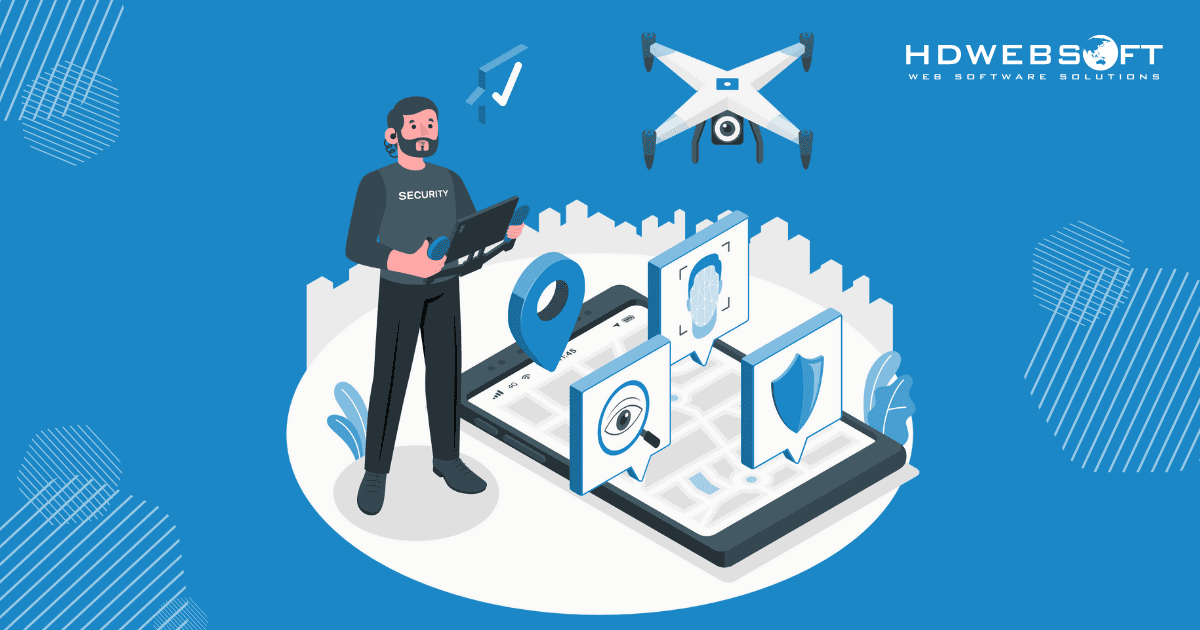
Drones can also be counted as an advanced digital transformation technology for their various uses.
Hyperautomation Is The Next Step
This is the advanced integration of AI, RPAs, and analytics to streamline and optimize business operations. Essentially, it goes beyond traditional automation by enabling end-to-end process automation, reducing manual effort, and enhancing efficiency. Therefore, businesses can create fully automated workflows that improve productivity, minimize errors, and drive innovation across various industries.
Business Impact
- Significant cost savings by reducing manual labor.
- Increased efficiency in handling large volumes of data.
- Improved compliance through automated regulatory reporting.
5. Data Analytics and Business Intelligence
Fueling Data-Driven Decision-Making
Businesses are harnessing the power of big data to drive strategic decision-making and gain a competitive edge. As a leading digital transformation technology, data analytics helps organizations extract valuable insights for innovation and growth.
Emerging Trends in Data Analytics
- Real-Time Analytics: Helps businesses respond to changes instantly.
- AI-Powered Insights: Enhances forecasting and trend analysis.
- Predictive Modeling: Assists in risk management and market planning.
The Importance of Data Governance
As businesses collect vast amounts of data, ensuring compliance with data privacy regulations such as GDPR and CCPA becomes essential. Otherwise, failure to comply can lead to hefty fines, legal consequences, and reputational damage. Therefore, organizations must implement robust security practices to safeguard sensitive information and maintain customer trust.
6. Cloud and Edge Computing
The Role of Cloud Computing
Cloud computing continues to be a fundamental pillar of digital transformation technology. It enables businesses to store, manage, and process data efficiently. Moreover, with cloud solutions, organizations can scale their IT infrastructure on demand.
The Rise of Edge Computing
- Processes data closer to its source, reducing latency.
- Enables real-time applications in healthcare, manufacturing, and smart cities.
- Enhances IoT performance by minimizing the need for constant cloud connectivity.
Cloud vs. Edge Computing
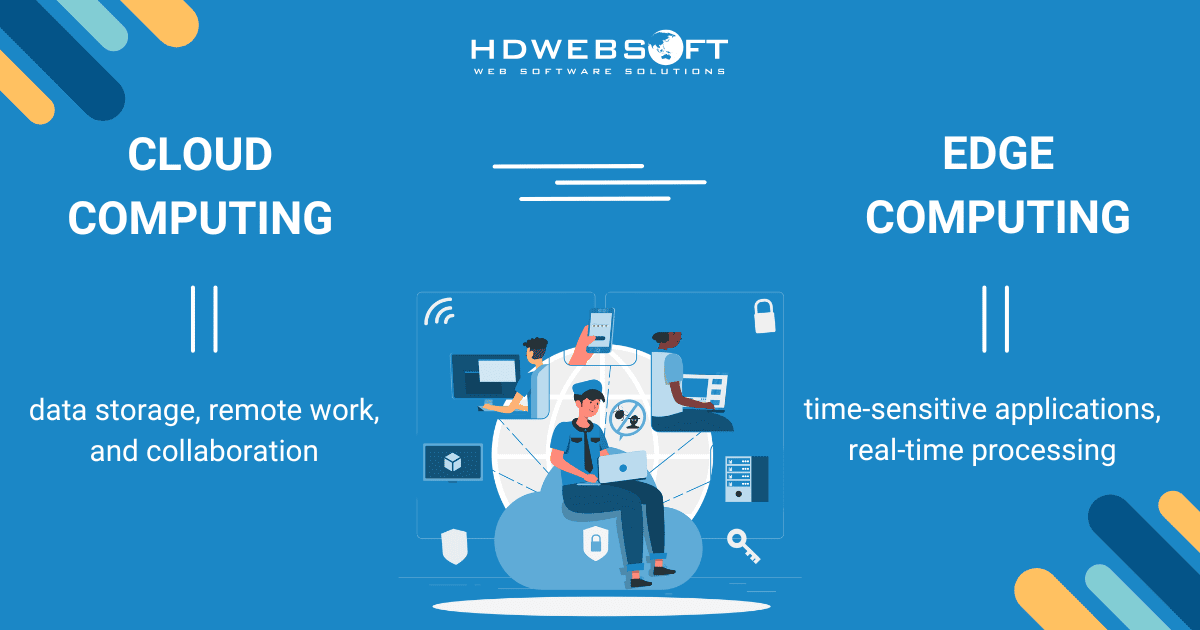
- Cloud computing is ideal for data storage, remote work, and collaboration. It allows businesses to scale their storage needs effortlessly while ensuring data accessibility from anywhere. Additionally, cloud platforms offer enhanced security, backup solutions, and integration with various business applications.
- Edge computing is better for time-sensitive applications that require real-time processing. By processing data closer to the source, it reduces latency and enhances response times. In particular, this benefits industries like healthcare, autonomous vehicles, and industrial automation, where immediate decision-making is critical.
7. Blockchain Technology
Ensuring Security and Transparency
Blockchain technology ensures secure and transparent transactions by eliminating intermediaries and reducing fraud. As an integral digital transformation technology, blockchain is driving trust and efficiency across industries.
Key Applications
- Automate transactions and reduce the risk of human error.
- Enhance privacy and security in online interactions.
- Improve traceability and accountability.
Blockchain in Fraud Prevention
By leveraging cryptographic security, blockchain technology helps businesses prevent fraud, streamline verification processes, and enhance trust in digital transactions.
8. 3D Printing
Accelerating Prototyping and Manufacturing
3D printing technology speeds up production cycles by allowing rapid prototyping and on-demand manufacturing. Hence the reason this type of technology is redefining how industries approach product development and mass production.
Some Applications Across Industries
- Healthcare: Customized prosthetics and bio-printed tissues.
- Aerospace: Lightweight, high-strength components for aircraft.
- Construction: 3D-printed buildings reduce material waste and costs.
Benefits of 3D Printing
- Cost-effective production with minimal waste.
- Faster time-to-market for new product designs.
- Customization at scale, catering to individual customer needs.
Some Successful Digital Transformation Examples
Here are some examples of organizations that have successfully digitized their operations using appropriate technologies.
Starbucks Leveraging AI for Superior Customer Experience
With over 32,000 stores across 80 countries, Starbucks is a household name among coffee lovers. Embracing digital transformation early, the company introduced the ‘Digital Flywheel’ in 2017 to enhance customer engagement through rewards, personalization, seamless payments, and streamlined ordering.
By leveraging cloud-based platforms, Starbucks was able to optimize order management, improve inventory tracking, and enhance production efficiency. In addition to this, the integration of Artificial Intelligence within its mobile app further refined personalization. As a result, customers now receive tailored product recommendations and customized rewards based on their preferences, making their experience more engaging.
Moreover, Starbucks’ commitment to innovation remains strong, as its CEO continues to emphasize the importance of adopting new technologies. Thanks to this forward-thinking approach, Starbucks has successfully solidified its position as the world’s leading coffee brand.
Maersk and IBM Transformed Supply Chains with Blockchain
Maersk joined forces with IBM to develop TradeLens, a blockchain-powered platform designed to enhance supply chain transparency. By digitizing and tracking shipping documents, TradeLens minimizes paperwork and accelerates processing times.
A notable example is its use in shipping flowers from Kenya to the Netherlands, reducing documentation delays from days to mere hours. Thus, this innovation has significantly boosted efficiency and lowered costs for Maersk and its clients.
IKEA Place’s AR Furniture Shopping Experience
IKEA Place empowers customers to virtually place IKEA furniture within their own homes using their smartphones or tablets. By scanning the room and selecting a desired item within the app, users can overlay a realistic 3D model of the furniture onto their real-world environment. Consequently, this interactive and intuitive approach transforms the online furniture shopping experience from a gamble into a confident and informed decision.
The impact of IKEA Place has been significant. From then on, the app has likely contributed to a reduction in costly furniture returns. Furthermore, it has boosted customer engagement by providing a fun and practical tool for exploring IKEA’s product range.
Conclusion
The digital transformation landscape is evolving rapidly, and businesses must embrace these cutting-edge technologies to stay ahead. In fact, as industries continue to advance, these innovations will shape the future of work, commerce, and everyday life. Therefore, staying adaptable, making strategic investments in the right digital transformation technology, and fostering a culture of innovation will be crucial for long-term success in 2025 and beyond.
At the same time, implementing these technologies effectively requires expertise and experience. That’s where HDWEBSOFT comes in. As a tech-savvy software development firm, we specialize in helping businesses integrate digital transformation technology seamlessly into their operations. With a team of highly skilled developers and industry experts, we design tailored solutions that drive efficiency, innovation, and growth.
By partnering with HDWEBSOFT, companies can confidently embrace the future. With our expertise and commitment to success, businesses gain a trusted technology partner who will support their digital journey every step of the way.




